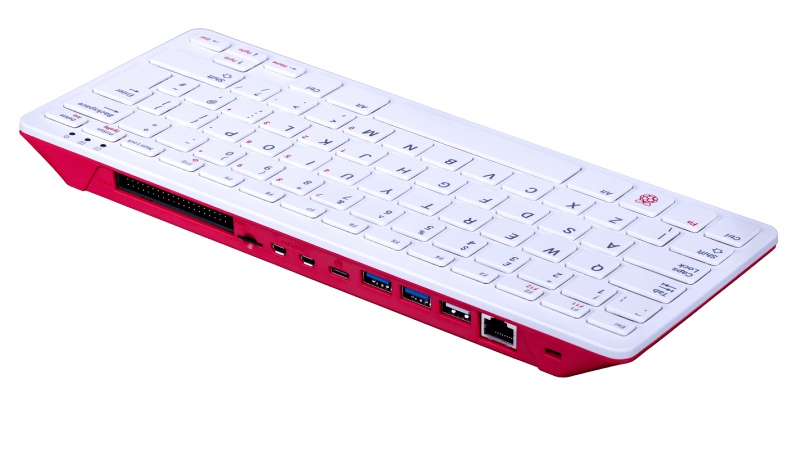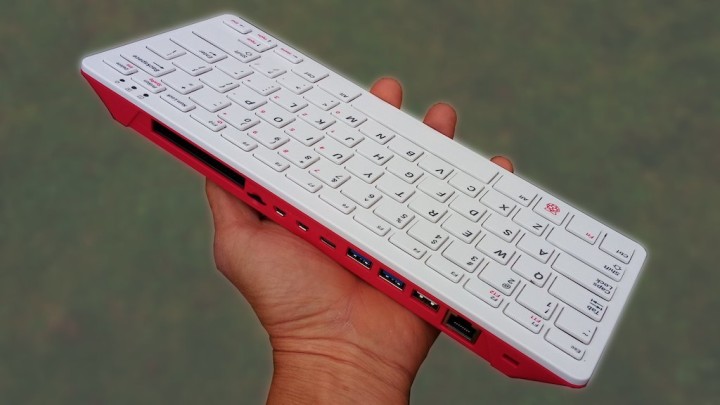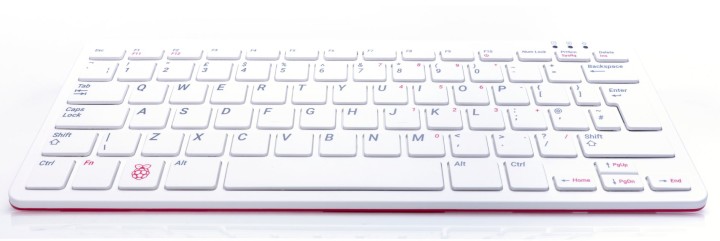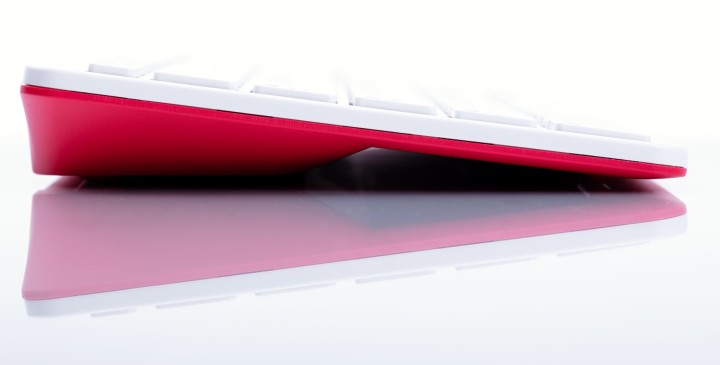Introducing the Raspberry Pi 400
November 02, 2020
on
on

The last few weeks have been busy for the Raspberry Pi Foundation. After introducing the Compute Module 4 (also known as CM4) two weeks ago together with its accompanying IO board, today the Foundation launches the Raspberry Pi 400. Unlike the CM4, which was a to-be-expected evolution of the previous version CM3, the Raspberry Pi 400 is a completely new product.
It’s a Keyboard!
Housed inside a keyboard, the Raspberry Pi 400 is the first Raspberry Pi that doesn’t come as a bare computer board, but as a nicely finished consumer product instead. The Raspberry Pi 400 is based on the Raspberry Pi 4, so it is not completely new, but its shape is. The Pi 4 was reshaped to fit inside the keyboard, and its connectors were moved to make them available on the rear of the device.
All the Connectors?
No, not all. The LCD display port, the camera connector, and the analogue audio/video (AV) connector have been dropped. Furthermore, one USB 2.0 port has been repurposed internally to connect the keyboard to. This leaves the user with two micro-HDMI ports, two USB 3.0 and one USB 2.0 port, a true Gigabit Ethernet port, the microSD card slot and, most importantly, the 40-pin extension connector.New Features
Besides being shaped as a keyboard, the Raspberry Pi 400 has few new features. One of them is the soft Power On/Off button (on the F10 key) which allows the Pi to be switched down the proper way (instead of pulling the plug), and a large heat sink inside makes a fan unnecessary, thereby ensuring noiseless operation.
Specifications of the Raspberry Pi 400
Being basically an 4-GB RPi 4, the specifications of the Raspberry Pi 400 are almost the same:- 1.8 GHz quad-core ARM Cortex-A72 CPU
- 4 GB LPDDR4-3200 DRAM
- VideoCore VI graphics (OpenGL ES 3.1, Vulkan)
- 4kp60 HEVC decode
- True Gigabit Ethernet
- 2× USB 3.0 and 1× USB 2.0 ports
- 2× micro-HDMI ports (1× 4kp60 or 2× 4kp30)
- USB-C for input power, supporting 5 V 3 A operation
- Raspberry Pi-compatible 40-pin horizontal GPIO connector
- Kensington lock
- Dimensions: 285 mm × 122 mm × 22 mm (11.2” × 4.8” × 0.87”)
- Weight: 385 g (13.6 oz, about 1.7 cups ;-)

Pricing and availability
At launch, the Raspberry Pi 400 will be available in six different country/language variants (EN, US, DE, FR, IT, ES) and should retail for around €70. A kit comprising the Pi 400, a USB-C power supply, a (wired) mouse, a micro-HDMI-to-HDMI cable (1 metre), a preloaded 16 GB microSD card and the official Raspberry Pi Beginner’s Guide (updated for the Raspberry Pi 400) will cost about €100.
P.S.: When choosing a kit, make sure to get the country variant right for both the keyboard and the power supply.
Read full article
Hide full article


Discussion (1 comment)